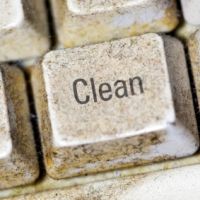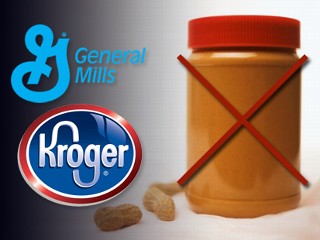Minnesota-based food maker Northern Star is recalling several different refrigerated potato products after some samples were found to have Listeria monocytogenes.
According to WCCO-TV, a former employee had already reported concerns about listeria on plant equipment to the FDA.
I’m not sure what his role was in the company, but he told the news crew,
“…I like to protect the people who eat this product. I’ve seen mice all over the place. Cockroaches, black mold, listeria: I mean you name it, you can find it."
 Sounds pretty gross, but—if necessary—most of the poop can be cooked out of food.
Sounds pretty gross, but—if necessary—most of the poop can be cooked out of food.
A report of the recall by kare11.com noted,
“Officials say properly cooking the food kills Listeria bacteria, but the Minnesota Department of Agriculture says often times people overlook the cooking instructions and simply heat these products in the microwave.”
It only takes a couple minutes to kill listeria if you can get the food up to 158F. A microwave can do this quickly, but unevenly. The cold spots that don’t get up to the right temp can still have listeria bacteria living in them.
Therefore, many manufacturers—such as Northern Star—don’t provide that option in the cooking instructions.
However, pretending people don’t use the microwave is not a realistic way to minimize the risk of someone getting sick. 
Some have suggested acknowledging consumer use of microwave ovens by pasting DO NOT MICROWAVE on packages of foods that are likely to make people sick if they’re not cooked properly (like raw chicken thingies).
In the case of refrigerated hashbrowns, it’s probably reasonable to provide instructions for the microwave and include a little note on the dangers of uneven cooking.
This would give consumers the opportunity to make an informed decision on how they’ll cook their potatoes. Particularly when there’s poop in them.
So far, no illnesses have been reported in connection with this recall. Providing more information to consumers could help ensure that’s the case.

 In a
In a 
 My husband and I both got a bottle of pink moo juice (which is markedly different from
My husband and I both got a bottle of pink moo juice (which is markedly different from 
 1. To begin with, there is no such thing as a “free” market for food…
1. To begin with, there is no such thing as a “free” market for food… If it is not likely that an incident/outbreak will be traced back to the producer responsible, the possibility of making a profit from a contaminated food may be greater than the chance they’ll get caught.
If it is not likely that an incident/outbreak will be traced back to the producer responsible, the possibility of making a profit from a contaminated food may be greater than the chance they’ll get caught. Parnell sat stiffly, his hands folded in his lap at the witness table, as Rep. Greg Walden, R-Ore., held up a clear jar of his company’s products wrapped in crime scene tape and asked him if he would be willing to eat the food.
Parnell sat stiffly, his hands folded in his lap at the witness table, as Rep. Greg Walden, R-Ore., held up a clear jar of his company’s products wrapped in crime scene tape and asked him if he would be willing to eat the food. Henry Waxman, chairman of the House Committee on Energy and Commerce, was quoted as saying, “This company cared more about its financial bottom line than it did about the safety of its customers.”
Henry Waxman, chairman of the House Committee on Energy and Commerce, was quoted as saying, “This company cared more about its financial bottom line than it did about the safety of its customers.” 
.jpg) In light of that, a reporter for the
In light of that, a reporter for the  petting zoo having substantial E coli O157:H7 contamination.
petting zoo having substantial E coli O157:H7 contamination.  The surprised diners were refunded and the company apologized in a statement for any distress caused by the fallen mice.
The surprised diners were refunded and the company apologized in a statement for any distress caused by the fallen mice.
 The team’s research was funded by The Clorox Co. and included microbial testing of more than 616 surfaces in private offices and cubicles in Tucson, Ariz., and Washington, D.C. Desktops were thought to harbor more bacteria than any other surface, though phones, computer keyboards, and mice followed closely behind.
The team’s research was funded by The Clorox Co. and included microbial testing of more than 616 surfaces in private offices and cubicles in Tucson, Ariz., and Washington, D.C. Desktops were thought to harbor more bacteria than any other surface, though phones, computer keyboards, and mice followed closely behind. their desks.
their desks. —including
—including  It could just be that recalls are scary.
It could just be that recalls are scary.